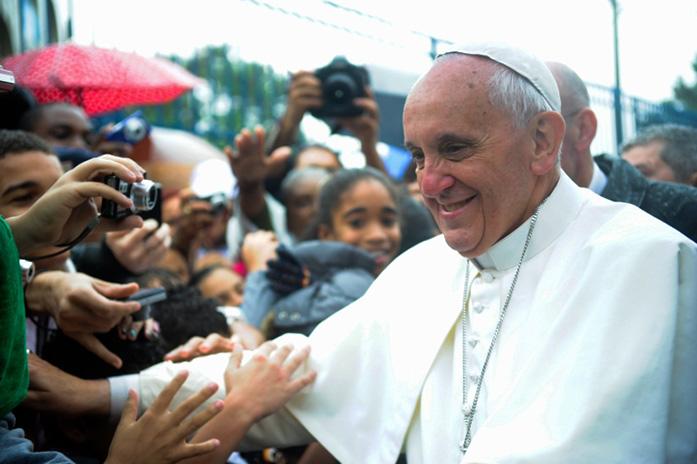Pope Francis will visit the United States today through Sept. 27, making appearances in Washington, D.C, New York City, and Philadelphia. This visit comes on the heels of the pope’s visit to Cuba, where, among the pulled punches directed toward communism and the need for increased religious freedom, was his recurring theme of income equality. Francis has made his opinion on the matter quite clear, and there is cause to expect a similar reprimand from the papacy.
Examining the trends of the pope’s previous visits (such as the one made to South America in July) and the contents of his encyclical months prior reveal a definitive and outspoken stance on the societal ills spawned from capitalism and an increasingly materialistic economic structure. Furthermore, Francis has publicly advocated for issues ranging from climate-change action to the rights of the unborn to live, and this paradigm is not so much progressive as much as it is an attempt to return to the simplicity of basic human goodness.
Within his encyclical, the pope describes humans as “creatures of this world, enjoying a right to life and happiness, and endowed with unique dignity,” and yet as a society, it would appear as though a disparity has formed separating us from this intrinsic good. The pope does not seem to argue for radical political policy changes but rather the rectification of this disparity in all of the facets it presents itself. In this sense, effort has been made toward reaching the innate good in the United States, and the distance to a society oriented toward serving the needs and happiness of people is not impossible.
A reform is necessary to encourage a deviation from a life lived with the sole objective of acquiring currency, but voices from the material world will surely fall on deaf ears. An important aspect of faith and spirituality is the ability to demonstrate how the values and forms of the intangible and ideal can influence the corrupted physical world, and the pope is wise to use his position as a spiritual leader to capitalize on that.
Perhaps a reprimand is necessary to show that the transition toward the greater good is not insurmountable, nor can it afford to be delayed. It is imperative for world leaders, both secular and religious, to continue the push toward inoculating society from the self-imposed maladies preventing true global equality from being attained. Hopefully, Francis’ visit will instill courage in those influential members of this society hesitant to take the uncomfortable steps toward what is described by the pope as “an integral development and an improvement in the quality of life” that should be the goal of any functioning society.



